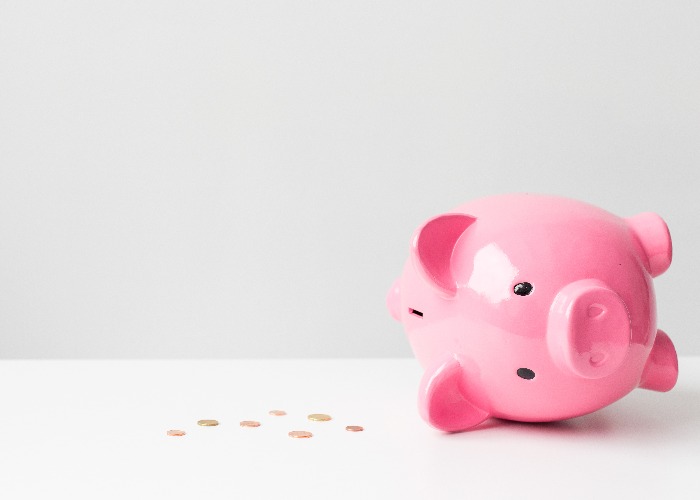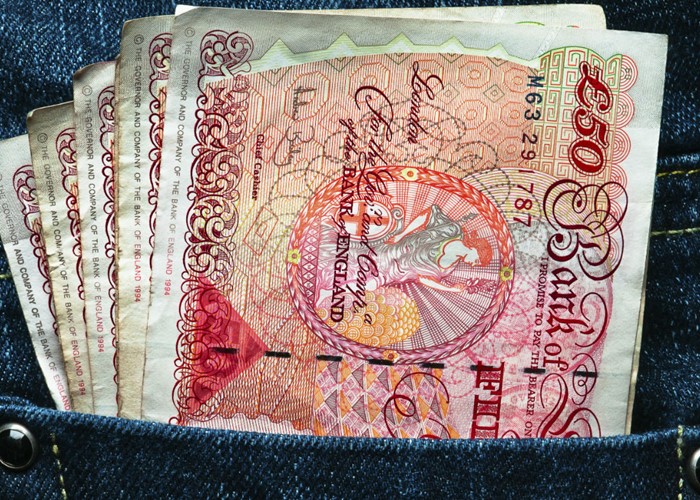Opinion: Government is wrong to think we need 1p and 2p coins

The Government has poured cold water on speculation that 1p and 2p coins could be scrapped. We think they're wrong – and most of you do too!
The Government has stressed it has no plans to scrap copper coins, just one day after the Treasury announced a consultation on the current mix of coins and notes in circulation.
The aim of this particular consultation is to work out whether all the values currently available still serve a purpose.
Its data focused in particular on the role of the lowest denominations, revealing how six in 10 1p and 2p coins are only used once before they disappear from circulation, dropped into piggy banks, put in long-term storage or simply lost.
This means the Royal Mint is having to constantly produce copper coins – around 500 million a year – to replace these ones that are disappearing.
Common 50p coins that are worth more than their face value
“From an economic perspective, having large numbers of denominations that are not in demand, saved by the public, or in long-term storage at cash processors rather than used in circulation does not contribute to an efficient or cost-effective cash cycle,” the Treasury consultation document says.
Reading between the lines, I had hoped this would spell the end for these pointless coins, but sadly that now seems unlikely.
Speaking to the BBC, the Prime Minister's spokesperson said this morning: "The consultation's call for evidence was simply intended to help the government better understand the role of cash and digital payments.
"One of the elements was whether the denominational mix of coins meets the public need. From the early reaction, it looks as if it does."
Not a popular move
So it looks like the coins are here to stay, but I think that's the wrong move. You can read on to see my thinking, but I wanted to update this piece (which I wrote yesterday) with the results of the poll that ran alongside it.
Of the 430-odd people who voted, just over a quarter (26%) felt we should leave our coins and notes as is, with the rest of you favouring a change of some sort.
I'm pleased most of you agree with me. For those who don't, read on to see if I can change your mind!
Earn a top rate on your savings: compare ISAs, peer-to-peer and traditional savings accounts
Eroding value of coppers
I have a piggy bank stuffed full of copper coins that I regularly scoop out of my purse in order to lighten the load. I can’t honestly remember the last time I handed over a 1p or 2p coin as part of a payment.
It was probably when I was still at school and buying Drumstick lollies when they were still 2p, or perhaps back in the 90s when a Freddo cost just 10p.
But, with the average penny sweet now costing a lot more than 1p and a Freddo priced at 30p, there really isn’t much use for copper coins.

You probably don’t even know that 1p and 2p coins cease to be legal tender if you try to use them to pay off debts worth more than 20p.
‘Legal tender’ only relates to paying off debts in court, but it does give a shopkeeper a strong case for refusing payments in 1p and 2p coins too.
So, aside from saving them, there is little else you can actually do with copper coins.
Inflation has massively eroded the value of the 1p and 2p coins in your purse. A one pence coin is now worth less than the halfpenny coin was when it was abolished back in 1984.
If we scrap copper coins we won’t be the first country to do so. Australia, Canada and Switzerland have all removed their smallest denomination coins from circulation after inflation rendered them effectively worthless.
Bank Governor: it makes sense to scrap the 1p coin
Within the EU several countries, including Belgium and Finland, have stopped using one and two cent coins because the cost of producing them exceeds their value. Every one cent coin costs 1.65 cents to produce and distribute.
The Royal Mint has refused to reveal the cost of making a 1p coin, citing “commercial confidentiality” when The Times made a Freedom of Information request. But, it has said the cost is still “less than their face value”.
Stop stupid pricing
Another benefit of getting rid of copper coins would be the end of stupid pricing where everything costs £XX.99.
The idea is that by rounding a price down by 1p it makes you think it costs a pound less. For example, price something at £9.99 and us silly consumers will think it costs £9 rather than £10.
In reality, it's just patronising, annoying and means we all walk around weighed down by the 1p coins we’ve been given as change, unless we threw them straight into a charity box at the till, or – as most of us now do – paid in plastic instead.
Sadly, I know abolishing 1p and 2p coins won’t change much about the prices we pay.
I’m sure everything will just start costing £XX.95 instead, and my purse will be swimming with 5p coins, but at least that will mean the value of my piggy bank’s contents will go up.
Small change that could be worth a fortune

Earn a top rate on your savings: compare ISAs, peer-to-peer and traditional savings accounts
The end of £50 notes?
It isn’t just copper coins that the Treasury is considering getting rid of. The consultation will also look at the future of £50 notes.
The big red notes are rarely used for purchases, according to the Treasury, but there is strong demand for £50 notes overseas where they are saved alongside dollars and euros.
I wouldn’t mind seeing the back of £50 notes either. I have very rarely had one in my possession, but when I have tried to spend one I have invariably been met by mistrust from the person behind the till.
It’s held up to the light, perhaps marked with one of those fake-detector pens. All in all, the purchase process is slowed down and I spend a minute being viewed as a potential criminal, neither things that I want when shopping.
“There is a perception among some that £50 notes are used for money laundering, hidden economy activity, and tax evasion,” says the consultation paper. In short, £50 notes are viewed as dodgy by most people.
I’m sure that as inflation soars we’ll eventually be reliant on a £50 note just to buy a pint of milk or a Freddo, but for now there doesn’t seem to be much harm in retiring them until they are more widely needed.
Comments
Be the first to comment
Do you want to comment on this article? You need to be signed in for this feature